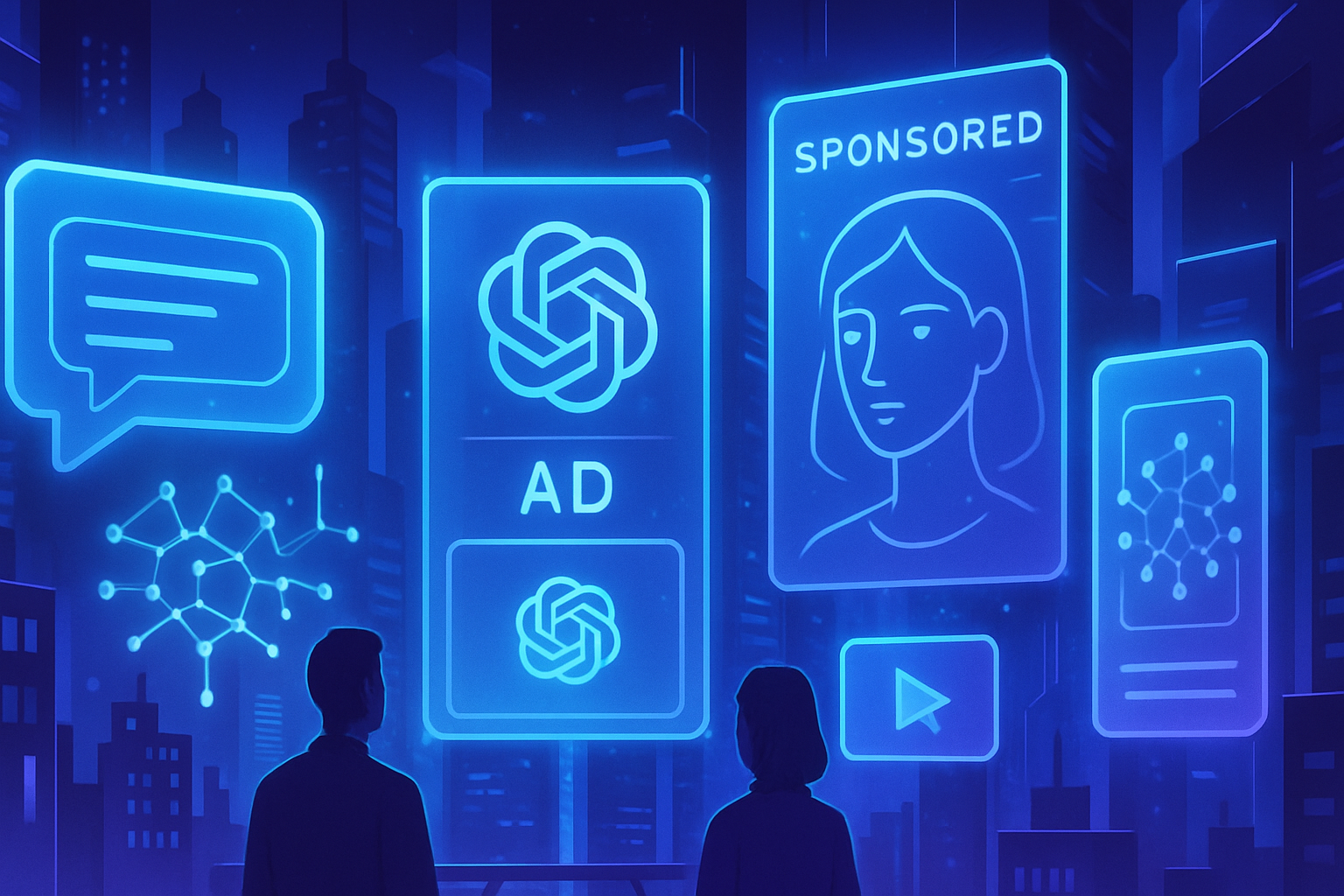Artificial intelligences, particularly ChatGPT, are undergoing a radical transformation, marked by the potential integration of targeted advertisements and sponsored links. The growing appetite of companies for direct access to millions of users generates unprecedented economic challenges. The implications for the monetization of these tools are at the epicenter of current debates. The future of virtual assistants will depend on a delicate balance between user experience and profitability. How will these changes shape the digital landscape?
The stakes of AI monetization
The question of the monetization of artificial intelligences (AIs) like ChatGPT occupies a central place in contemporary debates. OpenAI, the company developing ChatGPT, is considering introducing advertisements and sponsored links, similar to its competitors such as Google and Perplexity. This evolution responds to the skyrocketing costs associated with the operation of these advanced technologies.
The economic model of OpenAI
Currently, OpenAI generates the majority of its revenue through subscriptions, with prices starting at 23 euros per month in Europe. In April, approximately 20 million paying users were reported, but this base remains a minority among the 800 million weekly users. The company’s growth ambitions remain high, aiming to reach one billion dollars in revenue by 2026.
The new head of applications, Fidji Simo, plays a key role in developing a more diversified monetization strategy. Her team will explore various methods to leverage free users while preserving the integrity of the assistant’s stripped-down interface. The goal will lead to a significant transformation of the current landscape of AI services.
One-click purchases and their implications
OpenAI recently integrated a feature allowing one-click purchases for products mentioned in its assistant’s responses. This innovation raises questions about the impact of commercialization on the reliability of the provided results. Although the company claims it does not favor certain products, the temptation to introduce sponsored links remains present.
Users may see their search results gradually influenced by commercial pressures. The question remains: will the neutrality of responses be maintained in this new economic framework?
Integrated applications and development perspectives
In addition to the purchase functionality, OpenAI has introduced applications in ChatGPT, similar to an App Store. These applications, such as Spotify or Booking, are accessible via a dedicated directory. The inclusion of these services opens a new area of prospects for advertisers wishing to appear prominently within the suggestions provided by the assistant.
The potential for advertising revenue in this framework could increase significantly. Many questions arise concerning the level of transparency granted to users and how this evolution will influence the overall experience.
The implications for the AI ecosystem
This race towards monetization does not only concern OpenAI. The entire AI ecosystem faces similar challenges regarding their economic viability. Rivals in the market, such as Meta, continue to fund their superintelligence labs, while the sector questions the impacts of generated content on the quality and credibility of information.
Publishers are confronted with crucial challenges related to the emergence of AI-generated content. Information must not only be accurate but also presented ethically, in order to maintain user trust within this constantly evolving technological environment.
Currently, the balance between innovation and respect for fundamental values remains precarious. Companies in the industry must continually assess the impact of their decisions on public perception and the use of artificial intelligences.
Frequently asked questions
What is OpenAI’s position on integrating advertisements into ChatGPT?
OpenAI is cautious about introducing advertisements into ChatGPT but considers this possibility in the future depending on the evolution of its business model and user feedback.
How does one-click purchasing influence ChatGPT’s recommendations?
While OpenAI states that product recommendations are not biased, the introduction of one-click purchasing could encourage sponsored links in the future, which could distort the presented results.
What are the foreseeable impacts of advertisements on the user experience of ChatGPT?
Advertisements could potentially alter the user experience by making responses less neutral and favoring certain products or services over others.
What percentage of OpenAI’s revenue is expected to come from free users by 2029?
OpenAI is projected to generate around 29 billion dollars in revenue from its free users and other products by 2029, representing about 20% of the total.
How does OpenAI plan to monetize its free users?
OpenAI will strengthen its dedicated monetization team to develop strategies aimed at increasing the revenue generated from free users, particularly through commissions on sales.
Do other artificial intelligence companies adopt a model similar to OpenAI’s?
Yes, competitors like Google and Perplexity are also testing ad and sponsored link formats in their services, indicating a general trend toward the monetization of AIs.
Can users influence the type of advertisements presented to them?
Currently, OpenAI does not offer users the ability to influence advertisements, but user feedback could play a role in the selection of ads displayed in the future.
Will OpenAI’s economic model primarily be subscription-based in the future?
Although subscriptions are a key economic model for OpenAI, the company is also exploring other revenue streams related to the monetization of free users.
What applications are integrated into ChatGPT related to purchases?
ChatGPT has already integrated applications like Spotify and Booking, allowing users easy access to services, with the prospect of introducing sponsored purchasing options.






